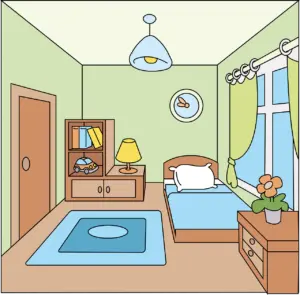Problems of Illegal Fly Tipping
PROBLEMS OF ILLEGAL FLY TIPPING
A DETAILED REPORT BY BUILDINGS AND TRUST
Illegal fly-tipping is a significant environmental, social, and economic issue in the UK. It involves the illegal dumping of waste on land without the necessary permits or licenses. Fly-tipping can range from small-scale littering to large quantities of industrial waste being dumped illegally.
Here are some of the key problems associated with fly-tipping in the UK:
1. Environmental Damage:
- Pollution of Land and Water: Fly-tipped waste can release harmful chemicals and pollutants into the soil, rivers, and groundwater. This is especially harmful if the waste contains hazardous materials like asbestos, chemicals, or other toxic substances.
- Harm to Wildlife: Animals can be harmed or killed by waste, either through physical contact (sharp objects or entanglement) or by ingesting harmful substances. It also destroys habitats for local wildlife.
- Spread of Disease: Fly-tipped waste can attract rats, insects, and other pests, leading to the spread of diseases to both animals and humans. The presence of decaying organic matter or hazardous waste increases this risk.
2. Health Hazards:
- Waste left in public areas or near residential neighborhoods can pose health risks to local communities. Hazardous materials, sharp objects, and contamination are dangerous, especially for children and pets.
- Fly-tipped waste can include syringes, chemicals, and other dangerous items that pose serious risks to anyone coming into contact with them.
3. Economic Costs:
- Clean-up Costs: Local councils and landowners bear the financial burden of cleaning up illegally dumped waste. According to reports, it costs councils in England millions of pounds annually to clean up fly-tipping incidents.
- Cost to Taxpayers: The expenses associated with cleaning up fly-tipped waste are funded by taxpayers. This diverts money from other vital public services.
- Loss of Property Value: Areas affected by frequent fly-tipping can suffer a decline in property values. Unsightly waste can deter potential buyers and businesses from investing in the area.
4. Social and Aesthetic Impact:
- Unsightly Waste: Fly-tipping makes streets, parks, and countryside areas look neglected and rundown. It reduces the quality of life in affected areas and can have a negative impact on tourism.
- Perception of Crime: Persistent fly-tipping can contribute to a general feeling of lawlessness in a community. This “broken windows” effect may increase other forms of anti-social behavior and crime in the area.
5. Impact on Agriculture:
- Fly-tipping on farmland can cause significant problems for farmers. Contaminated soil or waste can damage crops, while livestock may be harmed by ingesting or coming into contact with dangerous materials.
- The cost of removing fly-tipped waste on private land typically falls on the landowner, further burdening farmers and rural communities.
6. Legal Consequences:
- Increased Prosecution: Authorities are increasingly cracking down on fly-tipping, with stiff fines and possible prison sentences for offenders. However, the scale of the problem often makes it difficult for local authorities to investigate and prosecute all incidents.
- Unlicensed Waste Disposal: Many fly-tipping incidents involve individuals or businesses who do not have proper waste disposal licenses, undercutting legitimate waste carriers and contributing to a black market in waste disposal.
7. Dumping Hazardous Waste:
- Some illegal dumping involves toxic or hazardous materials that are expensive to dispose of properly. When dumped illegally, these substances can have long-term environmental consequences, creating “toxic sites” that require expensive clean-up efforts.
Addressing the Problem:
Efforts to combat fly-tipping in the UK include:
- Increased surveillance and penalties: Many councils have installed CCTV in fly-tipping hotspots and have increased fines. Fines can reach up to £50,000 or even result in imprisonment.
- Encouraging legal waste disposal: Authorities are working to make waste disposal more accessible and affordable for businesses and individuals to reduce the incentive for illegal dumping.
- Public awareness campaigns: Educating the public on the consequences of fly-tipping and promoting responsible waste management are key to reducing the problem.
Despite these efforts, fly-tipping remains a persistent issue, particularly in rural areas and on private land. Continuing collaboration between local councils, law enforcement, and the public is essential for minimizing its impact.
The cost of dealing with fly-tipping in England is substantial and continues to burden local councils each year. According to recent statistics:
Key Financial Costs:
- Annual Clean-Up Costs:
- Councils in England spent around £10.9 million in the 2021-2022 period to clear large-scale fly-tipping incidents (known as “tipper lorry-sized” or larger).
- Overall, the total cost to councils of clearing all fly-tipping incidents is estimated to be in the region of £50 million annually.
- Incident Management:
- In 2021-2022, local authorities in England reported over 1.09 million fly-tipping incidents. This marked a slight decrease from the previous year, but the cost of cleaning up and investigating these incidents remains significant.
- Prosecution and Fines:
- Councils also spend money on investigating and prosecuting offenders. In 2021-2022, there were over 507,000 enforcement actions taken by local authorities in England, including fines, warnings, and legal action.
- The costs of enforcement (surveillance, investigation, and legal proceedings) were around £12.3 million in 2021-2022.
- Rural Areas and Private Land Costs:
- Councils often bear the brunt of fly-tipping in public spaces, but rural landowners and farmers can also be heavily impacted. On private land, the cost of cleaning up waste falls on the landowner, and estimates suggest that rural landowners collectively spend around £1 million annually clearing fly-tipped waste.
Additional Costs to Consider:
- Diverted Resources: Local councils have to allocate significant staff and resources to tackle fly-tipping, diverting funds from other public services.
- Environmental and Long-Term Costs: The environmental impact of fly-tipping, particularly hazardous waste, can result in costly clean-up operations and long-term damage to ecosystems.
Efforts to Reduce Costs:
Councils are working to reduce these costs through increased surveillance, higher fines (up to £50,000 or 12 months in prison), and public awareness campaigns. However, the issue remains a persistent financial strain on public funds.
In conclusion, fly-tipping costs English councils tens of millions of pounds each year, impacting both public services and the environment.
RESPONSIBLE PROPERTY CLEARANCES WITH BUILDINGS AND TRUST




HOW MUCH DOES A HOUSE CLEARANCE COST?
A UK house clearance can range in price from £299 to £1500 for a large 4-bedroomed property in the Centre of London. Each price for a house clearance will vary, depending on various factors, such as:
- the location and overall size of your property
- the volume and size of individual items
- the weight of individual items
- the property has hazardous items in it
- the number of electrical appliances
- disposing
- inclusive of garage or shed or garden clearance
- difficulty accessing the property
- traffic constrictions e.g. parking

BUILDINGS AND TRUST
What Type of Property Clearance is Included?
Most importantly, although we specialises in all our customers’ house clearance needs.
Domestic House Clearance Services Including
- All types of domestic housing
- Sheds
- Garages
- Outhouses
- Extensions
- Basement
Commercial Clearances Including
- Offices
- Factories
- Hotels
- Shops
- Warehouses
- Agricultural buildings

SINGLE ROOM
RANGE: £50 – £150

1-BEDROOM FLAT
RANGE: £200 – £400

2-BEDROOM FLAT/HOUSE
RANGE: £300 – £600

3-BEDROOM HOUSE
RANGE: £500 – £1000

4-BEDROOM HOUSE
RANGE: £800 – £1500

+5-BEDROOM HOUSE
RANGE: £1200 – £3000+
Professional Clearances
-
We Are a Responsible House Clearance Service There for You -
We Are a Licensed House Clearance -
We Offer you a Free No-obligation Quote -
We Are a Certified Waste Carrier -
Small to Big House Clearances -
We Ensure a Dependable House Clearance Service, Tailored to Your Needs -
We Provide an Environmentally Friendly House Clearance Service -
We Aim to Recycle and Reuse Wherever We Can

SAFE AND ACCOMPLISHED HOUSE CLEARANCES
HOUSE CLEARANCE

HOUSE CLEARANCE
